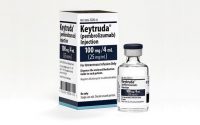Warm handoffs do not improve attendance at behavioral health intake appointments
In programs that integrate behavioral health services into primary care, “warm handoffs,” in which primary care clinicians introduce patients to behavioral health professionals, are commonly used.
Researchers at Boston Medical Center have found that warm handoffs are not associated with improved attendance at behavioral health intake appointments.
It has been theorized that warm handoffs could build patients’ trust in behavioral health clinicians and reduce patients’ stigma about behavioral health care, potentially translating to improved attendance at behavioral health appointments.
Instead, researchers found that the most significant predictor of attendance at an initial intake was time from referral until appointment, consistent with other studies in specialty mental health and other clinical settings.
The authors call for a prospective study comparing different types of warm handoffs to standard referrals to determine if warm hand-offs improve attendance at initial intake appointments and which features are most beneficial.
Such a study could also evaluate whether certain patient groups benefit more than others from warm handoffs, and if this type of referral can help address disparities in attendance across demographic groups and diagnoses.
Source: Read Full Article


